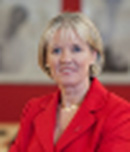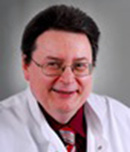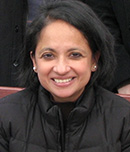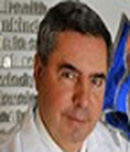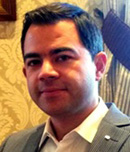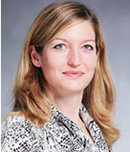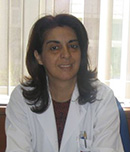Theme: Promising Growth Towards The Pinnacle in Cardiac Research
Cardiology Summit 2016
 Mary E. McGowan
Mary E. McGowan
Chief Executive Officer
WomenHeart: The National Coalition for Women with Heart Disease
Dear Colleagues,
It is a pleasure and privilege to welcome you to our 11th Annual Cardiology Summit which is being held September 12-13, 2016, in Philadelphia, Pennsylvania. Cardiologists and researchers who specialize in cardiovascular disease from all over the world are convening in Philadelphia to present new research.
Cardiovascular disease topics ranging from prevention to optimal care will be presented by world-class professors, scientists, and health care professionals.
The objective of the Summit is to improve our understanding of the development of cardiovascular disease with a strong emphasis on diagnosis.
Presenters will be speaking on the latest medical advances in regenerative medicine, treatment of heart rhythm disorders, coronary and vascular surgeries, pediatric cardiology, and cardiac imaging.
Other areas that will be covered throughout the Summit include cardiac nursing, cardiac stress, myopericardial strain, cardiac defibrillation, cardiogenic embolism, and Nephrosclerosis.
The Summit will provide enough space for discussion, meetings, and workshops to allow a close contact between speakers and visitors.
I look forward to seeing you in Philadelphia on September 12-13.

Mary E. McGowan
ConferenceSeries Ltd is inviting you to attend the 11th International Cardiac Conference which is to be held at Philadelphia,USA during September 12-13, 2016 organized by ConferenceSeries Ltd will bring together world-class professors, scientists and cardiologists to discuss strategies for disease remediation for heart, Cardiac stress test, Cardiac glycoside, Cardiac Enzyme Studies. Cardiology conferences are designed to provide diverse and current education that will keep medical professionals abreast of the issues affecting the prevention, diagnosis and treatment of cardiovascular disease. Cardiology Summit 2016 is comprised of 10 tracks designed to offer comprehensive sessions that address current issues in Pharmaceutical Regulatory Affairs.
ConferenceSeries Ltd Organizes 300 conferences, 500 workshops and 200 symposiums on Clinical, Medicine, Pharma, cardiology diagnosis workshops, cardiac nursing conferences , cardiac conferences and Science & Technology every year across USA, Europe, Asia, Middle East, Australia and UK with support from 1000 more scientific societies and Publishes 500 open access journals which contains over 30000 eminent personalities, reputed scientists as editorial board members.
Cardiology updates and events are organized and covered throughout the globe across all parts includes everything like cardiology conferences 2015 USA, cardiology conferences 2015, cardiology events 2015, cardiology conferences 2015 Australia, European cardiology conference, Mediterranean cardiology meeting 2015, International congress of cardiology. Cardiology exhibitions will be organized by ConferenceSeries Ltd at the conference dates.
The 11th Annual  Cardiology Summit  is being held during September 12-13, 2016 at Philadelphia, USA. It is our pleasure and privilege to invite prompt keynote presentations, oral talks, poster presentations and exhibitions. This conference is conducted with the theme "Promising Growth towards the Pinnacle in Cardiac Research".
Accreditation:
This activity has been planned and implemented in accordance with the accreditation requirements and policies of the Accreditation Council for Continuing Medical Education (ACCME) through the joint provider ship of Peer Point Medical Education Institute and Conference Series, LLC.
Peer Point Medical Education Institute is accredited by the ACCME to provide continuing medical education for physicians.
Designation:
Peer Point Medical Education Institute designates the live format for this educational activity for a maximum of 7 AMA PRA Category 1 Credits™.
Physicians should only claim credit commensurate with the extent of their participation in the activity.
Cardiology Summit aims to improve our understanding of the development of cardiovascular diseases with strong emphasis on diagnosis. Cardiology Meetings is to initiate a sustainable platform for exchanging up-to the minute upstream and downstream achievements, industrial needs and research opportunities of heart diseases fields, it provides a great opportunity to share in what has happened, be part of what is happening and influence the future direction in one of the fastest growing research sectors.  cardiology conferences are diversified on topics like Cardiology Congress, World Cardiology Conference, Cardiovascular Conference, Cardiac Surgery Conferences.
Track 1:Â Cardiology
Heart relating to the Cardia of stomach which includes heart and blood vessels. Heart is muscular organ of the body which pumps blood through the blood vessels of the circulating system. Cardiology Congress 2016 employs defibrillation, cardiogenic embolism, cardiovascular imaging, and hypertension coronary and vascular surgeries. Cardiology includes stress test, regeneration of muscles, Nephrosclerosis and Myopericardial strain. At present cardiology includes new innovative methods for cardiac surgeries and treatment. The heart is a muscular organ about the size of a fist, located just behind and slightly left of the breastbone. The heart pumps blood through the network of arteries and veins called the cardiovascular system.
Related Conferences:
15th Cardiothoracic Meeting December 08-09, 2106 Philadelphia, USA; International Conference on Echocardiography July 18-19, 2016 Berlin, Germany; Annual Conference on Atherosclerosis and Clinical Cardiology July 11-12, 2106 Philadelphia, USA; 9th International Conference on Arrhythmia and cardiac Surgery July 14-15, 2106 Brisbane, Australia; 8th Global Cardiologists Meeting July18-20, 2016 Berlin, Germany; Cardiology Issues in Younger Adults  September 15-24, 2016 Rome, Italy; World Conference in Cardiac Electrophysiology and Cardiac Techniques June 8-11, 2016 Nice, France; 65th Annual Scientific Session on Cardiology in American College April 02-04,2016 Chicago, USA; 13th International Winter Arrhythmia School February 05-07, 2016 Collingwood, Ontario, Canada; Saudi Heart Association Annual Meeting February 12-16, 2016 Riyadh, Saudi Arabia; The Cardiac Society of Australia and New Zealand ASM August 4-7, 2016.
Track 2: Stress Test
Stress Test is pressure or tension exerted on Heart. Stress test is a cardio logical test measures the heart’s ability to respond to external stress in a controlled clinical environment. The stress response is induced by exercise or by drug stimulation. The cardiac stress test is done with heart stimulation, either by exercise on a treadmill, pedalling a stationary exercise with bicycle or with intravenous pharmacological stimulation, with the patient connected to an Electrocardiogram (ECG).
Related Conferences:
International Conference on Cardiovascular Medicine August 01-02, 2106 Manchester, UK; International Conference on Hypertension & Health Care August 11-12, 2016 Toronto, Canada ; 10th International Conference on Molecular & Cellular Cardiology August 22-24 Sao Paulo, Brazil; International Conference on Ischemic Heart Diseases  October 20-21, 2016 Chicago, USA; International Conference on  Cardiology Expo and Cardiac Surgery  April 04-06, 2016, Dubai, UAE; 19th Annual Update on Pediatric and Congenital Cardiovascular Disease  February 24- 28, 2016, Orlando, USA; World Congress of Cardiology  and Cardiovascular Health Mexico City, Mexico June 04-07, 2016; Symposium in Structural Heart Disease Interventions  January 21-22, 2016 Celebration, USA; 62nd Annual Conference on Association of Cardiovascular And Thoracic Surgeons February 18-21 2016 Lucknow, India; European Society of Cardiology Congress August 27-31, 2016 Rome, Italy
Track 3:Â Myopericardial strain
Myopericardial strain is swelling and irritation of the pericardium surrounded by heart. Often it can causes with chest pain and other symptoms. Heart attacks, or myocardial infarction occur when the blood supply to a part of the heart is interrupted causing some heart cells to die. Most often the heart attack is caused by a blockage in one of the coronary arteries which results from atherosclerotic plaque. The heart is surrounded by a double-layered, sac-like structure called the pericardium. The space between the layers normally contains a very small amount of fluid. But if the pericardium is diseased or injured, the resulting inflammation can lead to pericardial effusion or strain. Fluid can also build up around the heart without inflammation. Sometimes, pericardial effusion can be caused by the accumulation of blood after a surgical procedure or injury. When the amount of fluid exceeds the pericardium's "full" level, pericardial effusion puts pressure on the heart, causing poor heart function. If left untreated, pericardial effusion can cause heart failure or even death.
Related Conferences:
International Conference on Angiology December 08-09, 2016 San Antonio, Texas, USA; 13th European Cardiology Congress October 24-26, 2016 Valencia, Spain; 14th International Conference on Clinical and Experimental Cardiology November 07-09 , 2016 San Francisco , USA; International Conference on Angiology December 8-9, 2016 San Antonia, USA; International Conference on Hypertension  & Treatment August 11-12,2016 Toronto, Canada; 84th  EAS (European Atherosclerosis Society) Congress May 29-June 01, 2016 Innsbruck, Austria; 12th Annual Congress of the European Cardiac Arrhythmia Society, April 17-19, 2016 Lasvegas, USA; International Conference on Cardiology and Cardiac Surgery April 04-06, 2016, Dubai, UAE; The 13th International Dead Sea Symposium on Innovations in Cardiac Arrhythmias and Device Therapy, march 6-9, 2016 Tel Aviv, Israel; Gulf Arrhythmic Congress January 21-23, 2016 Dubai, UAE. 4th International Conference on Prehypertension, Hypertension & Cardio Metabolic Syndrome, March 03-06, 2016, Venice, Italy
Track 4: Heart Defibrillation
Heart Defibrillation is contraction of the heart, and the resulting circulation, is under the control of the electrical conduction system of the heart. Cardiology meeting employs the sinoatrial node, (SAN) located within the wall of the right atrium; it generates electrical impulses that are carried by special conducting tissue to the atrioventricular node (AVN). Depolarization (heart muscle contraction caused by electrical stimulation) occurs nearly simultaneously in the right and left ventricles 1-2 tenths of a second after atrial depolarization. The entire sequence of depolarization, from beginning to end (for one heart beat), takes 2-3 tenths of a second. This depolarizes a critical mass of the heart muscle, terminates the dysrhythmia and allows normal sinus rhythm to be re-established by the body's natural pacemaker, in the Sino atrial node of the heart.
Related Conferences:
Arrhythmia and Cardiac Surgery Meeting July 14-15, 2016 Brisbane, Australia;Cardiovascular Medicine Conference August 01-02, 2016 Manchester, UK; Global Cardiologists Meeting July 18-20, 2016 Berlin, Germany; Echocardiography Conference July 18-19, 2016 Berlin, Germany; World Cardiothoracic Meeting December 08-09, 2016 Philadelphia, USA. 19th Annual Update on Pediatric and Congenital Cardiovascular Disease February 24- 28, 2016, Orlando, USA; American Cardiology Congress 2016; ACC Annual Meeting July 12-13, 2016; European Cardiology Congress August 27-31, 2016 Rome, Italy; 21st World Congress on Heart Disease, July 30-August 01, 2016, Boston, MA, USA; 5th Annual Innovations in Valve and Structural Heart disease  Feb 15-17,2016. International Conference on Cardiology and Cardiac surgery April 04-06, 2016, Dubai, UAE 11, 2016 Nice, France Â
Track 5:Â Regeneration of Cardiac Muscles
Heart muscle cells can regenerate after cardiac repair. The regrowth of cardiac muscle tissue to repair injured or damaged muscle fibres in the postnatal stage. Mammalian heart has been considered as a post-mitotic organ composed of highly specialized and terminally differentiated cardiac myocytes. The heart attack is caused by a blockage in one of the coronary arteries which results from atherosclerotic plaque. The plague is an accumulation of lipids like cholesterol and white blood cells on the artery wall which can accumulate. Eventually, an area of plaque can break apart, causing a blood clot to form on the surface of the plaque. Ischemically injured mammalian heart often leads to irreversible deficits in Cardiac function. To identify a source of Muscle cell regeneration capable of restoring damaged cardiac tissue. Damaged cardiac muscle cells will regenerate by Stem cell therapy or by protein patch.
Related Conferences:
15th World Cardiothoracic Meeting December 08-09, 2016 Philadelphia, USA; 14th Clinical & Experimental Cardiology conference November 14-16, 2016 Orlando, Florida, USA ; Atherosclerosis Conference July 11-12, 2016 Philadelphia, USA; Cardio Vascular Medicine Conference August 1-2, 2016 Manchester, UK; Angiology Conference December 08-09, 2016 San Antonio, USA; 16th World Cardiology Conference December 08-10, 2016 Dubai, UAE ; Echo Cardiography Conference July 18-19, 2016 Berlin, Germany; 10th Molecular & Cellular Cardiology conference November 28-29, 2016 Sao Paulo, Brazil ; 8th Annual The Heart Beat of Cardiology December 10-12, 2015, Chicago, USA; European Cardiology Congress August 27-31, 2016 Rome – Italy ; American Cardiology association conference April 02-04, 2016 Chicago, USA PreHT 2016 - The fourth International Conference on Prehypertension, Hypertension and Cardio Metabolic Syndrome, Venice, Italy; WCC 2016 - World Congress of Cardiology and Cardiovascular Health, Mexico City, Mexico.
Track 6:Â Cardiogenic Embolism
“Cardiogenic embolism†refers to embolization from a cardiac source to a target organ. Cardiogenic Embolism is possible cardiac conditions that predispose patients to systemic emboli leads to silent brain infarcts, vascular dementia as a result of multiple embolic infarcts, and the role of transcranial Doppler imaging in in the detection of embolic signals. Brain is the organ most frequently targeted by cardiac emboli, and these emboli are responsible for all ischemic strokes. Cardiogenic embolism is obstruction of blood or struking of any foreign matter in blood vessels while travelling through the blood stream. Blood clot travels through the blood stream where it can lodge in artery of brain, blocks the flow of oxygen-rich blood leads to lack of oxygen results in damage, destruction or death of tissue in brain beyond the affected area results stroke.
Related Conferences:Â
14th Clinical & Experimental Cardiology conference November 14-16, 2016 Orlando, Florida, USA ; Atherosclerosis Conference July 11-12, 2016 Philadelphia, USA; Cardio Vascular Medicine Conference August 1-2, 2016 Manchester, UK; Angiology Conference December 08-09, 2016 San Antonio, USA; 16th World Cardiology Conference December 08-10, 2016 Dubai, UAE ; Echo Cardiography Conference July 18-19, 2016 Berlin, Germany; 10th Molecular & Cellular Cardiology conference November 28-29, 2016 Sao Paulo, Brazil ; American College of Cardiology Annual meeting April 02-04, 2016 Chicago, USA ; European Society of Cardiology Conference August 27-31, 2016 Rome – Italy ; 8th Annual The Heart Beat of Cardiology December 10-12, 2015, Chicago, USA; The 13th International Dead Sea Symposium on Innovations in Cardiac Arrhythmias and Device Therapy, march 6-9, 2016 Tel Aviv, Israel; Gulf Arrhythmic Congress January 21-23, 2016 Dubai, UAE. 4th International Conference on Prehypertension, Hypertension & Cardio Metabolic Syndrome, March 03-06, 2016, Venice, Italy
 Track 7: Atherosclerosis
Atherosclerosis occurs when fat, cholesterol, and calcium harden in the arteries. Atherosclerosis can occur anywhere in the body, including the heart, legs, and kidneys. It is the accumulations of lipid, cells, and matrix components, including minerals, are associated with structural disorganization, repair, and thickening of the intima, as well as deformity of the arterial wall. Atherosclerosis is a syndrome affecting arterial blood vessels due to a chronic inflammatory response of WBCs in the walls of arteries. This is promoted by low-density lipoproteins (LDL, plasma proteins that carry cholesterol and triglycerides) without adequate removal of fats and cholesterol from the macrophages by functional high-density lipoproteins (HDL). It is commonly referred to as a "hardening" or furring of the arteries. It is caused by the formation of multiple atheromatous plaques within the arteries.
Related Conferences:
Arrhythmias Congress July 14-15, 2016 Brisbane, Australia; Cardio Vascular Medicine Conference August 01-02, 2016 Manchester, UK; USA; Echocardiography Conference June 06-07, 2016 London, UK; World Congress of Cardiology and Cardiovascular Health Mexico City, Mexico June 04-07, 2016; American Cardiology Association, 2016; 19th Annual Update on Pediatric and Congenital Cardiovascular Disease February 24- 28, 2016, Orlando; European Society of Cardiology Congress 27-31 August 2016 Rome, Italy; European Cardiology Congress, 2016; 4th International Conference on Prehypertension, Hypertension & Cardio Metabolic Syndrome, March 03-06, 2016, Venice, Italy; Cardiac Society of Cardiology , 2016;12th Annual Congress of the European Cardiac Arrhythmia Society, April 17-19, 2016 Lasvegas, USA; International Conference on Cardiology and Cardiac Surgery April 04-06, 2016, Dubai, UAE; The 13th International Dead Sea Symposium on Innovations in Cardiac Arrhythmias and Device Therapy, march 6-9, 2016 Tel Aviv, Israel; Gulf Arrhythmic Congress January 21-23, 2016 Dubai, UAE. 4th International Conference on Prehypertension, Hypertension & Cardio Metabolic Syndrome, March 03-06, 2016, Venice, Italy
Track 8:Â Hypertension
Hypertension, also known as high blood pressure or arterial hypertension is a chronic medical condition in which the blood pressure in the arteries is elevated. There are two primary hypertension types. For 95% of people with high blood pressure, the cause of their hypertension is unknown; this is called essential, or primary, hypertension. When a cause can be found, the condition is called secondary. Isolated systolic hypertension, malignant hypertension, and resistant hypertension are all recognized hypertension types with specific diagnostic criteria. Hypertension is a major risk factor for heart disease and stroke. When heart beats, it pushes blood through arteries to the rest of body. When the blood pushes harder against the walls of arteries, blood pressure goes up. Blood pressure may be different at different times of the day. It is usually higher when first wake up, after exercise, or when are under stress.
Related Conferences:
International Conference on Angiology December 08-09, 2016 San Antonio, Texas, USA; 13th European Cardiology Congress October 24-26, 2016 Valencia, Spain; 14th International Conference on Clinical and Experimental Cardiology November 07-09 , 2016 San Francisco , USA; International Conference on Angiology December 8-9, 2016 San Antonia, USA; International Conference on Hypertension  & Treatment August 11-12,2016 Toronto, Canada; 84th  EAS (European Atherosclerosis Society) Congress May 29-June 01, 2016 Innsbruck, Austria; 12th Annual Congress of the European Cardiac Arrhythmia Society, April 17-19, 2016 Lasvegas, USA; International Conference on Cardiology and Cardiac Surgery April 04-06, 2016, Dubai, UAE; The 13th International Dead Sea Symposium on Innovations in Cardiac Arrhythmias and Device Therapy, march 6-9, 2016 Tel Aviv, Israel; Gulf Arrhythmic Congress January 21-23, 2016 Dubai, UAE. 4th International Conference on Prehypertension, Hypertension & Cardio Metabolic Syndrome, March 03-06, 2016, Venice, Italy.
Track 9:Â Cardiovascular Imaging
Cardiovascular imaging is a central aspect of Cardiology. Cardiovascular imaging is the action or process of producing an image especially of a part of the body (Heart) by radiographic techniques. It interprets cross sectional imaging studies of the heart and vascular system. Standard imaging tests include echocardiography (Echocardiography), chest x-ray, CT, MRI, and various radionuclide techniques (Radionuclide Imaging). Chest pains, heart flutters, heart attack - they are the signposts of heart troubles. Such symptoms can be identified by Imaging technology: CT scans, MRI, 3-dimensional echocardiography (3-D echo), and PET/CT.
Related Conferences:Â
Arrhythmias Congress July 14-15, 2016 Brisbane, Australia; Cardio Vascular Medicine Conference August 01-02, 2016 Manchester, UK; International Cardiac Conference September 14-15, 2016 Philadelphia, USA; Echocardiography Conference June 06-07, 2016 London, UK; World Congress of Cardiology and Cardiovascular Health Mexico City, Mexico June 04-07, 2016; American Cardiology Association, 2016; 19th Annual Update on Pediatric and Congenital Cardiovascular Disease February 24- 28, 2016, Orlando; European Society of Cardiology Congress 27-31 August 2016 Rome, Italy; European Cardiology Congress, 2016; 4th International Conference on Prehypertension, Hypertension & Cardio Metabolic Syndrome, March 03-06, 2016, Venice, Italy; Cardiac Society of Cardiology, 2016; Congress, August 12-13, 2016.
Track 10:Â Cardiovascular Nursing
Cardiovascular nursing is a nursing specialty that works with patients who suffer from various conditions of the cardiovascular system. Cardiac nurses help treat conditions such as unstable angina,  cardiomyopathy,  coronary artery disease, congestive heart failure, myocardial infarction and cardiac dysrhythmia under the direction of a cardiologist. Cardiac nurses perform postoperative care on a surgical unit, stress test evaluations, cardiachttp://www.imedpub.com/open-access/interventional-cardiologist-journals-articles-ppts-list.php monitoring, vascular monitoring, and health assessments. Cardiac nurses must have Basic Life Support and Advanced Cardiac Life Support certification. In addition, cardiac nurses must possess specialized skills including electrocardiogram monitoring, defibrillation, and medication administration by continuous intravenous drip. Cardiac nurses work in many different environments, including coronary care units (CCU), cardiac catheterization, intensive care units (ICU), operating theatres, cardiac rehabilitation centres, clinical research, cardiac surgery wards, cardiovascular intensive care units (CVICU), and cardiac medical wards.
Related Conferences:
Arrhythmia and Cardiac Surgery Meeting July 14-15, 2016 Brisbane, Australia;Cardiovascular Medicine Conference August 01-02, 2016 Manchester, UK; Global Cardiologists Meeting July 18-20, 2016 Berlin, Germany; Echocardiography Conference July 18-19, 2016 Berlin, Germany; World Cardiothoracic Meeting December 08-09, 2016 Philadelphia, USA. 19th Annual Update on Pediatric and Congenital Cardiovascular Disease February 24- 28, 2016, Orlando, USA; American Cardiology Congress 2016; ACC Annual Meeting July 12-13, 2016; European Cardiology Congress August 27-31, 2016 Rome, Italy; 21st World Congress on Heart Disease, July 30-August 01, 2016, Boston, MA, USA; 5th Annual Innovations in Valve and Structural Heart disease  Feb 15-17,2016. International Conference on Cardiology
Track 11:Â Coronary and Vascular Surgeries
Coronary surgeries will diverts blood around narrowed or clogged parts of the major arteries to improve blood flow and oxygen supply to the heart. Coronary bypass surgery uses a healthy blood vessel taken from leg, arm, chest or abdomen and connects it to the other arteries in heart so that blood is bypassed around the diseased or blocked area. After a coronary bypass surgery, blood flow to your heart is improved. Coronary bypass surgery is just one option to treat heart disease. Vascular surgery encompasses diagnosis and comprehensive, longitudinal management of disorders of the arterial, venous, and lymphatic systems, exclusive of the intracranial and coronary arteries.
Related Conferences:
15th Cardiothoracic Meeting December 08-09, 2106 Philadelphia, USA; International Conference on Echocardiography July 18-19, 2016 Berlin, Germany; Annual Conference on Atherosclerosis and Clinical Cardiology July 11-12, 2106 Philadelphia, USA; 9th International Conference on Arrhythmia and cardiac Surgery July 14-15, 2106 Brisbane, Australia; 8th Global Cardiologists Meeting July18-20, 2016 Berlin, Germany; Cardiology Issues in Younger Adults  September 15-24, 2016 Rome, Italy; World Conference in Cardiac Electrophysiology and Cardiac Techniques June 8-11, 2016 Nice, France; 65th Annual Scientific Session on Cardiology in American College April 02-04,2016 Chicago, USA; 13th International Winter Arrhythmia School February 05-07, 2016 Collingwood, Ontario, Canada; Saudi Heart Association Annual Meeting February 12-16, 2016 Riyadh, Saudi Arabia; The Cardiac Society of Australia and New Zealand ASM August 4-7, 2016.
Track 12:Â Pediatric Cardiologists
A pediatric cardiologist is a paediatrician who has received extensive training in diagnosing and treating children's cardiac problems. Evaluation and treatment may begin with the fetus since heart problems can now be detected before birth.  Common causes for a referral to the pediatric cardiologist include heart murmurs, chest pain, dizzy spell(s) or palpitations. Initial evaluations may result in the patient and his/her parents being reassured that there is nothing to worry about. A pediatric cardiologist is trained to perform and interpret procedures such as electrocardiograms, echocardiograms and exercise tests. In cases of more significant heart disease, a pediatric cardiologist may perform a cardiac catheterization in order to diagnose or treat the child's heart problem. If the child needs to be hospitalized, the pediatric cardiologist and pediatric cardiac surgeon work together in planning cardiac surgery, when needed.
Related Conferences:Â
Arrhythmias Congress July 14-15, 2016 Brisbane, Australia; Cardio Vascular Medicine Conference August 01-02, 2016 Manchester, UK; USA; Echocardiography Conference June 06-07, 2016 London, UK; World Congress of Cardiology and Cardiovascular Health Mexico City, Mexico June 04-07, 2016; American Cardiology Association, 2016; 19th Annual Update on Pediatric and Congenital Cardiovascular Disease February 24- 28, 2016, Orlando; European Society of Cardiology Congress 27-31 August 2016 Rome, Italy; 4th International Conference on Prehypertension, Hypertension & Cardio Metabolic Syndrome, March 03-06, 2016, Venice, Italy; Cardiac Society of Cardiology, 2016; World Cardiology Congress, August 12-13,2016.
Track 13:Â Nephrosclerosis
Nephrosclerosis, hardening of the walls of the small arteries and arterioles (small arteries that convey blood from arteries to the even smaller capillaries) of the kidney. This condition is caused by hypertension (high blood pressure). Hypertension can be present in a person for 20 to 30 years without evidence of kidney involvement, such persons usually die of other effects of hypertension such as congestion of blood in the heart, hardening of the heart tissue, or cerebral (brain) hemorrhage. If these maladies do not occur first, there is usually some eventual renal (kidney) involvement. Nephrosclerosis is classified as either benign or malignant. This indirectly leading to the disease condition atherosclerosis and finally towards congestive heart failure.
Related Conferences:
15th Cardiothoracic Meeting December 08-09, 2106 Philadelphia, USA; International Conference on Echocardiography July 18-19, 2016 Berlin, Germany; Annual Conference on Atherosclerosis and Clinical Cardiology July 11-12, 2106 Philadelphia, USA; 9th International Conference on Arrhythmia and cardiac Surgery July 14-15, 2106 Brisbane, Australia; 8th Global Cardiologists Meeting July18-20, 2016 Berlin, Germany; Cardiology Issues in Younger Adults  September 15-24, 2016 Rome, Italy; World Conference in Cardiac Electrophysiology and Cardiac Techniques June 8-11, 2016 Nice, France; 65th Annual Scientific Session on Cardiology in American College April 02-04,2016 Chicago, USA; 13th International Winter Arrhythmia School February 05-07, 2016 Collingwood, Ontario, Canada; Saudi Heart Association Annual Meeting February 12-16, 2016 Riyadh, Saudi Arabia; The Cardiac Society of Australia and New Zealand ASM August 4-7, 2016.
Track14:Â Advances in Cardiologists Education
Advances in Cardiology Education presents the current thinking of international experts regarding the underlying mechanisms of cardiovascular risk and the pathogenesis and pathophysiology of heart and its related disorders. This session gives new insights into the relationship between arterial stiffness, cardiovascular diagnosis, vascular study and atherosclerosis, but also establishes the possible interactions with age and other cardiovascular factors such as high blood pressure, diabetes and hyperlipidemia.
Related Conferences:Â
Arrhythmias Congress July 14-15, 2016 Brisbane, Australia; Cardio Vascular Medicine Conference August 01-02, 2016 Manchester, UK; Echocardiography Conference June 06-07, 2016 London, UK; World Congress of Cardiology and Cardiovascular Health Mexico City, Mexico June 04-07, 2016; American Cardiology Association, 2016; 19th Annual Update on Pediatric and Congenital Cardiovascular Disease February 24- 28, 2016, Orlando; European Society of Cardiology Congress 27-31 August 2016 Rome, Italy; European Cardiology Congress, 2016; 4th International Conference on Prehypertension, Hypertension & Cardio Metabolic Syndrome, March 03-06, 2016, Venice, Italy; Cardiac Society of Cardiology, 2016; World Cardiology Congress, 2016.
Track 15:Â Case report on Cardiology
Cardiology is an important muscular organ in humans and other animals, pumps blood through the vessels of the circulatory system. In medicine, a case report is a detailed report of symptoms, diagnosis, treatment and follow-up of an individual patient. Heart case report may contain a demographic profile of patient but usually describe an unusual or novel occurrence. Different case report can be done such as case reports on cardiac arrest and diseases have a great value and help in advancing and development of treatment strategies. In this way case expounds on cardiovascular issue and diseases have a phenomenal regard and help in advancing and progression of strategies. This Cardiology assembling or rather all cardiology gatherings, cardiology events, cardiologist social affairs will help in frameworks organization, B2B is uniting amidst specialists and academicians. We have dealt with various compelling cardiology events and cardiology gatherings and fabricate incredible relations bringing the researchers and associations together. Cardiology conferences, cardiologist get-togethers and cardiology events are basic for the fundamental indiv.
Related Conferences:
14th Clinical & Experimental Cardiology conference November 14-16, 2016 Orlando, Florida, USA ; Atherosclerosis Conference July 11-12, 2016 Philadelphia, USA; Cardio Vascular Medicine Conference August 1-2, 2016 Manchester, UK; Angiology Conference December 08-09, 2016 San Antonio, USA; 16th World Cardiology Conference December 08-10, 2016 Dubai, UAE ; Echo Cardiography Conference July 18-19, 2016 Berlin, Germany; 10th Molecular & Cellular Cardiology conference November 28-29, 2016 Sao Paulo, Brazil ; 13th European Cardiology Congress October 17-19, 2016 Rome, Italy ; Hypertension conference August 11-12, 2016 Toronto, Canada ; American College of Cardiology Annual meeting April 02-04, 2016 Chicago, USA ; European Society of Cardiology Conference August 27-31, 2016 Rome – Italy ; 8th Annual The Heart Beat of Cardiology December 10-12, 2015, Chicago, USA;  American Cardiology association conference April 02-04, 2016 Chicago, USA .
Track 16:Â Entrepreneurs Investment Meet
Entrepreneurs is an individual who, rather than working as an employee, runs a small business and assumes all the risk and reward of a given business venture, idea, or good or service offered for sale. The Cardio vascular Devices entrepreneur is commonly seen as a business leader and innovator of new ideas and business processes working on Medical devices. Entrepreneurs play a key role in any economy. These are the people who have the skills and initiative necessary to take good new ideas to cardiothoracic devices market and make the right decisions to make the idea profitable. Cardiac Devices Entrepreneurs Investment Meeting is a gathering of Cardiac Devices. Entrepreneurs and Investors that has been convened for the purpose of achieving a common goal through verbal interaction, such as sharing information or reaching agreement.
Related Conferences:
Arrhythmia and Cardiac Surgery Meeting July 14-15, 2016 Brisbane, Australia;Cardiovascular Medicine Conference August 01-02, 2016 Manchester, UK; Global Cardiologists Meeting July 18-20, 2016 Berlin, Germany; Echocardiography Conference July 18-19, 2016 Berlin, Germany; International Cardiac Conference September 14-15, 2016 Philadelphia, USA; World Cardiothoracic Meeting December 08-09, 2016 Philadelphia, USA. 19th Annual Update on Pediatric and Congenital Cardiovascular Disease February 24- 28, 2016, Orlando, USA; American Cardiology Congress 2016; ACC Annual Meeting 2016; American Cardiology Congress 2016; European Cardiology Congress August 27-31, 2016 Rome, Italy; 21st World Congress on Heart Disease, July 30-August 01, 2016, Boston, MA, USA; 5th Annual Innovations in Valve and Structural Heart disease  Feb 15-17, 2016; International Conference on Cardiology and Cardiac surgery April 04-06, 2016, Dubai, UAE 11, 2016 Nice, France .Â
The 11th Annual  Cardiology Summit  is being held during September 12-13, 2016 at Philadelphia, USA. It is our pleasure and privilege to invite prompt keynote presentations, oral talks, poster presentations and exhibitions. This conference is conducted with the theme "Promising Growth towards the Pinnacle in Cardiac Research".
Accreditation:
This activity has been planned and implemented in accordance with the accreditation requirements and policies of the Accreditation Council for Continuing Medical Education (ACCME) through the joint provider ship of Peer Point Medical Education Institute and Conference Series, LLC.
Peer Point Medical Education Institute is accredited by the ACCME to provide continuing medical education for physicians.
Designation:
Peer Point Medical Education Institute designates the live format for this educational activity for a maximum of 7 AMA PRA Category 1 Credits™.
Physicians should only claim credit commensurate with the extent of their participation in the activity.
Cardiology Summit aims to improve our understanding of the development of cardiovascular diseases with strong emphasis on diagnosis. Cardiology Meetings is to initiate a sustainable platform for exchanging up-to the minute upstream and downstream achievements, industrial needs and research opportunities of heart diseases fields, it provides a great opportunity to share in what has happened, be part of what is happening and influence the future direction in one of the fastest growing research sectors.  cardiology conferences are diversified on topics like Cardiology Congress, World Cardiology Conference, Cardiovascular Conference, Cardiac Surgery Conferences.
Track 1:Â Cardiology
Heart relating to the Cardia of stomach which includes heart and blood vessels. Heart is muscular organ of the body which pumps blood through the blood vessels of the circulating system. Cardiology Congress 2016 employs defibrillation, cardiogenic embolism, cardiovascular imaging, and hypertension coronary and vascular surgeries. Cardiology includes stress test, regeneration of muscles, Nephrosclerosis and Myopericardial strain. At present cardiology includes new innovative methods for cardiac surgeries and treatment. The heart is a muscular organ about the size of a fist, located just behind and slightly left of the breastbone. The heart pumps blood through the network of arteries and veins called the cardiovascular system.
Related Conferences:
15th Cardiothoracic Meeting December 08-09, 2106 Philadelphia, USA; International Conference on Echocardiography July 18-19, 2016 Berlin, Germany; Annual Conference on Atherosclerosis and Clinical Cardiology July 11-12, 2106 Philadelphia, USA; 9th International Conference on Arrhythmia and cardiac Surgery July 14-15, 2106 Brisbane, Australia; 8th Global Cardiologists Meeting July18-20, 2016 Berlin, Germany; Cardiology Issues in Younger Adults  September 15-24, 2016 Rome, Italy; World Conference in Cardiac Electrophysiology and Cardiac Techniques June 8-11, 2016 Nice, France; 65th Annual Scientific Session on Cardiology in American College April 02-04,2016 Chicago, USA; 13th International Winter Arrhythmia School February 05-07, 2016 Collingwood, Ontario, Canada; Saudi Heart Association Annual Meeting February 12-16, 2016 Riyadh, Saudi Arabia; The Cardiac Society of Australia and New Zealand ASM August 4-7, 2016.
Track 2: Stress Test
Stress Test is pressure or tension exerted on Heart. Stress test is a cardio logical test measures the heart’s ability to respond to external stress in a controlled clinical environment. The stress response is induced by exercise or by drug stimulation. The cardiac stress test is done with heart stimulation, either by exercise on a treadmill, pedalling a stationary exercise with bicycle or with intravenous pharmacological stimulation, with the patient connected to an Electrocardiogram (ECG).
Related Conferences:
International Conference on Cardiovascular Medicine August 01-02, 2106 Manchester, UK; International Conference on Hypertension & Health Care August 11-12, 2016 Toronto, Canada ; 10th International Conference on Molecular & Cellular Cardiology August 22-24 Sao Paulo, Brazil; International Conference on Ischemic Heart Diseases  October 20-21, 2016 Chicago, USA; International Conference on  Cardiology Expo and Cardiac Surgery  April 04-06, 2016, Dubai, UAE; 19th Annual Update on Pediatric and Congenital Cardiovascular Disease  February 24- 28, 2016, Orlando, USA; World Congress of Cardiology  and Cardiovascular Health Mexico City, Mexico June 04-07, 2016; Symposium in Structural Heart Disease Interventions  January 21-22, 2016 Celebration, USA; 62nd Annual Conference on Association of Cardiovascular And Thoracic Surgeons February 18-21 2016 Lucknow, India; European Society of Cardiology Congress August 27-31, 2016 Rome, Italy
Track 3:Â Myopericardial strain
Myopericardial strain is swelling and irritation of the pericardium surrounded by heart. Often it can causes with chest pain and other symptoms. Heart attacks, or myocardial infarction occur when the blood supply to a part of the heart is interrupted causing some heart cells to die. Most often the heart attack is caused by a blockage in one of the coronary arteries which results from atherosclerotic plaque. The heart is surrounded by a double-layered, sac-like structure called the pericardium. The space between the layers normally contains a very small amount of fluid. But if the pericardium is diseased or injured, the resulting inflammation can lead to pericardial effusion or strain. Fluid can also build up around the heart without inflammation. Sometimes, pericardial effusion can be caused by the accumulation of blood after a surgical procedure or injury. When the amount of fluid exceeds the pericardium's "full" level, pericardial effusion puts pressure on the heart, causing poor heart function. If left untreated, pericardial effusion can cause heart failure or even death.
Related Conferences:
International Conference on Angiology December 08-09, 2016 San Antonio, Texas, USA; 13th European Cardiology Congress October 24-26, 2016 Valencia, Spain; 14th International Conference on Clinical and Experimental Cardiology November 07-09 , 2016 San Francisco , USA; International Conference on Angiology December 8-9, 2016 San Antonia, USA; International Conference on Hypertension  & Treatment August 11-12,2016 Toronto, Canada; 84th  EAS (European Atherosclerosis Society) Congress May 29-June 01, 2016 Innsbruck, Austria; 12th Annual Congress of the European Cardiac Arrhythmia Society, April 17-19, 2016 Lasvegas, USA; International Conference on Cardiology and Cardiac Surgery April 04-06, 2016, Dubai, UAE; The 13th International Dead Sea Symposium on Innovations in Cardiac Arrhythmias and Device Therapy, march 6-9, 2016 Tel Aviv, Israel; Gulf Arrhythmic Congress January 21-23, 2016 Dubai, UAE. 4th International Conference on Prehypertension, Hypertension & Cardio Metabolic Syndrome, March 03-06, 2016, Venice, Italy
Track 4: Heart Defibrillation
Heart Defibrillation is contraction of the heart, and the resulting circulation, is under the control of the electrical conduction system of the heart. Cardiology meeting employs the sinoatrial node, (SAN) located within the wall of the right atrium; it generates electrical impulses that are carried by special conducting tissue to the atrioventricular node (AVN). Depolarization (heart muscle contraction caused by electrical stimulation) occurs nearly simultaneously in the right and left ventricles 1-2 tenths of a second after atrial depolarization. The entire sequence of depolarization, from beginning to end (for one heart beat), takes 2-3 tenths of a second. This depolarizes a critical mass of the heart muscle, terminates the dysrhythmia and allows normal sinus rhythm to be re-established by the body's natural pacemaker, in the Sino atrial node of the heart.
Related Conferences:
Arrhythmia and Cardiac Surgery Meeting July 14-15, 2016 Brisbane, Australia;Cardiovascular Medicine Conference August 01-02, 2016 Manchester, UK; Global Cardiologists Meeting July 18-20, 2016 Berlin, Germany; Echocardiography Conference July 18-19, 2016 Berlin, Germany; World Cardiothoracic Meeting December 08-09, 2016 Philadelphia, USA. 19th Annual Update on Pediatric and Congenital Cardiovascular Disease February 24- 28, 2016, Orlando, USA; American Cardiology Congress 2016; ACC Annual Meeting July 12-13, 2016; European Cardiology Congress August 27-31, 2016 Rome, Italy; 21st World Congress on Heart Disease, July 30-August 01, 2016, Boston, MA, USA; 5th Annual Innovations in Valve and Structural Heart disease  Feb 15-17,2016. International Conference on Cardiology and Cardiac surgery April 04-06, 2016, Dubai, UAE 11, 2016 Nice, France Â
Track 5:Â Regeneration of Cardiac Muscles
Heart muscle cells can regenerate after cardiac repair. The regrowth of cardiac muscle tissue to repair injured or damaged muscle fibres in the postnatal stage. Mammalian heart has been considered as a post-mitotic organ composed of highly specialized and terminally differentiated cardiac myocytes. The heart attack is caused by a blockage in one of the coronary arteries which results from atherosclerotic plaque. The plague is an accumulation of lipids like cholesterol and white blood cells on the artery wall which can accumulate. Eventually, an area of plaque can break apart, causing a blood clot to form on the surface of the plaque. Ischemically injured mammalian heart often leads to irreversible deficits in Cardiac function. To identify a source of Muscle cell regeneration capable of restoring damaged cardiac tissue. Damaged cardiac muscle cells will regenerate by Stem cell therapy or by protein patch.
Related Conferences:
15th World Cardiothoracic Meeting December 08-09, 2016 Philadelphia, USA; 14th Clinical & Experimental Cardiology conference November 14-16, 2016 Orlando, Florida, USA ; Atherosclerosis Conference July 11-12, 2016 Philadelphia, USA; Cardio Vascular Medicine Conference August 1-2, 2016 Manchester, UK; Angiology Conference December 08-09, 2016 San Antonio, USA; 16th World Cardiology Conference December 08-10, 2016 Dubai, UAE ; Echo Cardiography Conference July 18-19, 2016 Berlin, Germany; 10th Molecular & Cellular Cardiology conference November 28-29, 2016 Sao Paulo, Brazil ; 8th Annual The Heart Beat of Cardiology December 10-12, 2015, Chicago, USA; European Cardiology Congress August 27-31, 2016 Rome – Italy ; American Cardiology association conference April 02-04, 2016 Chicago, USA PreHT 2016 - The fourth International Conference on Prehypertension, Hypertension and Cardio Metabolic Syndrome, Venice, Italy; WCC 2016 - World Congress of Cardiology and Cardiovascular Health, Mexico City, Mexico.
Track 6:Â Cardiogenic Embolism
“Cardiogenic embolism†refers to embolization from a cardiac source to a target organ. Cardiogenic Embolism is possible cardiac conditions that predispose patients to systemic emboli leads to silent brain infarcts, vascular dementia as a result of multiple embolic infarcts, and the role of transcranial Doppler imaging in in the detection of embolic signals. Brain is the organ most frequently targeted by cardiac emboli, and these emboli are responsible for all ischemic strokes. Cardiogenic embolism is obstruction of blood or struking of any foreign matter in blood vessels while travelling through the blood stream. Blood clot travels through the blood stream where it can lodge in artery of brain, blocks the flow of oxygen-rich blood leads to lack of oxygen results in damage, destruction or death of tissue in brain beyond the affected area results stroke.
Related Conferences:Â
14th Clinical & Experimental Cardiology conference November 14-16, 2016 Orlando, Florida, USA ; Atherosclerosis Conference July 11-12, 2016 Philadelphia, USA; Cardio Vascular Medicine Conference August 1-2, 2016 Manchester, UK; Angiology Conference December 08-09, 2016 San Antonio, USA; 16th World Cardiology Conference December 08-10, 2016 Dubai, UAE ; Echo Cardiography Conference July 18-19, 2016 Berlin, Germany; 10th Molecular & Cellular Cardiology conference November 28-29, 2016 Sao Paulo, Brazil ; American College of Cardiology Annual meeting April 02-04, 2016 Chicago, USA ; European Society of Cardiology Conference August 27-31, 2016 Rome – Italy ; 8th Annual The Heart Beat of Cardiology December 10-12, 2015, Chicago, USA; The 13th International Dead Sea Symposium on Innovations in Cardiac Arrhythmias and Device Therapy, march 6-9, 2016 Tel Aviv, Israel; Gulf Arrhythmic Congress January 21-23, 2016 Dubai, UAE. 4th International Conference on Prehypertension, Hypertension & Cardio Metabolic Syndrome, March 03-06, 2016, Venice, Italy
 Track 7: Atherosclerosis
Atherosclerosis occurs when fat, cholesterol, and calcium harden in the arteries. Atherosclerosis can occur anywhere in the body, including the heart, legs, and kidneys. It is the accumulations of lipid, cells, and matrix components, including minerals, are associated with structural disorganization, repair, and thickening of the intima, as well as deformity of the arterial wall. Atherosclerosis is a syndrome affecting arterial blood vessels due to a chronic inflammatory response of WBCs in the walls of arteries. This is promoted by low-density lipoproteins (LDL, plasma proteins that carry cholesterol and triglycerides) without adequate removal of fats and cholesterol from the macrophages by functional high-density lipoproteins (HDL). It is commonly referred to as a "hardening" or furring of the arteries. It is caused by the formation of multiple atheromatous plaques within the arteries.
Related Conferences:
Arrhythmias Congress July 14-15, 2016 Brisbane, Australia; Cardio Vascular Medicine Conference August 01-02, 2016 Manchester, UK; USA; Echocardiography Conference June 06-07, 2016 London, UK; World Congress of Cardiology and Cardiovascular Health Mexico City, Mexico June 04-07, 2016; American Cardiology Association, 2016; 19th Annual Update on Pediatric and Congenital Cardiovascular Disease February 24- 28, 2016, Orlando; European Society of Cardiology Congress 27-31 August 2016 Rome, Italy; European Cardiology Congress, 2016; 4th International Conference on Prehypertension, Hypertension & Cardio Metabolic Syndrome, March 03-06, 2016, Venice, Italy; Cardiac Society of Cardiology , 2016;12th Annual Congress of the European Cardiac Arrhythmia Society, April 17-19, 2016 Lasvegas, USA; International Conference on Cardiology and Cardiac Surgery April 04-06, 2016, Dubai, UAE; The 13th International Dead Sea Symposium on Innovations in Cardiac Arrhythmias and Device Therapy, march 6-9, 2016 Tel Aviv, Israel; Gulf Arrhythmic Congress January 21-23, 2016 Dubai, UAE. 4th International Conference on Prehypertension, Hypertension & Cardio Metabolic Syndrome, March 03-06, 2016, Venice, Italy
Track 8:Â Hypertension
Hypertension, also known as high blood pressure or arterial hypertension is a chronic medical condition in which the blood pressure in the arteries is elevated. There are two primary hypertension types. For 95% of people with high blood pressure, the cause of their hypertension is unknown; this is called essential, or primary, hypertension. When a cause can be found, the condition is called secondary. Isolated systolic hypertension, malignant hypertension, and resistant hypertension are all recognized hypertension types with specific diagnostic criteria. Hypertension is a major risk factor for heart disease and stroke. When heart beats, it pushes blood through arteries to the rest of body. When the blood pushes harder against the walls of arteries, blood pressure goes up. Blood pressure may be different at different times of the day. It is usually higher when first wake up, after exercise, or when are under stress.
Related Conferences:
International Conference on Angiology December 08-09, 2016 San Antonio, Texas, USA; 13th European Cardiology Congress October 24-26, 2016 Valencia, Spain; 14th International Conference on Clinical and Experimental Cardiology November 07-09 , 2016 San Francisco , USA; International Conference on Angiology December 8-9, 2016 San Antonia, USA; International Conference on Hypertension  & Treatment August 11-12,2016 Toronto, Canada; 84th  EAS (European Atherosclerosis Society) Congress May 29-June 01, 2016 Innsbruck, Austria; 12th Annual Congress of the European Cardiac Arrhythmia Society, April 17-19, 2016 Lasvegas, USA; International Conference on Cardiology and Cardiac Surgery April 04-06, 2016, Dubai, UAE; The 13th International Dead Sea Symposium on Innovations in Cardiac Arrhythmias and Device Therapy, march 6-9, 2016 Tel Aviv, Israel; Gulf Arrhythmic Congress January 21-23, 2016 Dubai, UAE. 4th International Conference on Prehypertension, Hypertension & Cardio Metabolic Syndrome, March 03-06, 2016, Venice, Italy.
Track 9:Â Cardiovascular Imaging
Cardiovascular imaging is a central aspect of Cardiology. Cardiovascular imaging is the action or process of producing an image especially of a part of the body (Heart) by radiographic techniques. It interprets cross sectional imaging studies of the heart and vascular system. Standard imaging tests include echocardiography (Echocardiography), chest x-ray, CT, MRI, and various radionuclide techniques (Radionuclide Imaging). Chest pains, heart flutters, heart attack - they are the signposts of heart troubles. Such symptoms can be identified by Imaging technology: CT scans, MRI, 3-dimensional echocardiography (3-D echo), and PET/CT.
Related Conferences:Â
Arrhythmias Congress July 14-15, 2016 Brisbane, Australia; Cardio Vascular Medicine Conference August 01-02, 2016 Manchester, UK; International Cardiac Conference September 14-15, 2016 Philadelphia, USA; Echocardiography Conference June 06-07, 2016 London, UK; World Congress of Cardiology and Cardiovascular Health Mexico City, Mexico June 04-07, 2016; American Cardiology Association, 2016; 19th Annual Update on Pediatric and Congenital Cardiovascular Disease February 24- 28, 2016, Orlando; European Society of Cardiology Congress 27-31 August 2016 Rome, Italy; European Cardiology Congress, 2016; 4th International Conference on Prehypertension, Hypertension & Cardio Metabolic Syndrome, March 03-06, 2016, Venice, Italy; Cardiac Society of Cardiology, 2016; Congress, August 12-13, 2016.
Track 10:Â Cardiovascular Nursing
Cardiovascular nursing is a nursing specialty that works with patients who suffer from various conditions of the cardiovascular system. Cardiac nurses help treat conditions such as unstable angina,  cardiomyopathy,  coronary artery disease, congestive heart failure, myocardial infarction and cardiac dysrhythmia under the direction of a cardiologist. Cardiac nurses perform postoperative care on a surgical unit, stress test evaluations, cardiachttp://www.imedpub.com/open-access/interventional-cardiologist-journals-articles-ppts-list.php monitoring, vascular monitoring, and health assessments. Cardiac nurses must have Basic Life Support and Advanced Cardiac Life Support certification. In addition, cardiac nurses must possess specialized skills including electrocardiogram monitoring, defibrillation, and medication administration by continuous intravenous drip. Cardiac nurses work in many different environments, including coronary care units (CCU), cardiac catheterization, intensive care units (ICU), operating theatres, cardiac rehabilitation centres, clinical research, cardiac surgery wards, cardiovascular intensive care units (CVICU), and cardiac medical wards.
Related Conferences:
Arrhythmia and Cardiac Surgery Meeting July 14-15, 2016 Brisbane, Australia;Cardiovascular Medicine Conference August 01-02, 2016 Manchester, UK; Global Cardiologists Meeting July 18-20, 2016 Berlin, Germany; Echocardiography Conference July 18-19, 2016 Berlin, Germany; World Cardiothoracic Meeting December 08-09, 2016 Philadelphia, USA. 19th Annual Update on Pediatric and Congenital Cardiovascular Disease February 24- 28, 2016, Orlando, USA; American Cardiology Congress 2016; ACC Annual Meeting July 12-13, 2016; European Cardiology Congress August 27-31, 2016 Rome, Italy; 21st World Congress on Heart Disease, July 30-August 01, 2016, Boston, MA, USA; 5th Annual Innovations in Valve and Structural Heart disease  Feb 15-17,2016. International Conference on Cardiology
Track 11:Â Coronary and Vascular Surgeries
Coronary surgeries will diverts blood around narrowed or clogged parts of the major arteries to improve blood flow and oxygen supply to the heart. Coronary bypass surgery uses a healthy blood vessel taken from leg, arm, chest or abdomen and connects it to the other arteries in heart so that blood is bypassed around the diseased or blocked area. After a coronary bypass surgery, blood flow to your heart is improved. Coronary bypass surgery is just one option to treat heart disease. Vascular surgery encompasses diagnosis and comprehensive, longitudinal management of disorders of the arterial, venous, and lymphatic systems, exclusive of the intracranial and coronary arteries.
Related Conferences:
15th Cardiothoracic Meeting December 08-09, 2106 Philadelphia, USA; International Conference on Echocardiography July 18-19, 2016 Berlin, Germany; Annual Conference on Atherosclerosis and Clinical Cardiology July 11-12, 2106 Philadelphia, USA; 9th International Conference on Arrhythmia and cardiac Surgery July 14-15, 2106 Brisbane, Australia; 8th Global Cardiologists Meeting July18-20, 2016 Berlin, Germany; Cardiology Issues in Younger Adults  September 15-24, 2016 Rome, Italy; World Conference in Cardiac Electrophysiology and Cardiac Techniques June 8-11, 2016 Nice, France; 65th Annual Scientific Session on Cardiology in American College April 02-04,2016 Chicago, USA; 13th International Winter Arrhythmia School February 05-07, 2016 Collingwood, Ontario, Canada; Saudi Heart Association Annual Meeting February 12-16, 2016 Riyadh, Saudi Arabia; The Cardiac Society of Australia and New Zealand ASM August 4-7, 2016.
Track 12:Â Pediatric Cardiologists
A pediatric cardiologist is a paediatrician who has received extensive training in diagnosing and treating children's cardiac problems. Evaluation and treatment may begin with the fetus since heart problems can now be detected before birth.  Common causes for a referral to the pediatric cardiologist include heart murmurs, chest pain, dizzy spell(s) or palpitations. Initial evaluations may result in the patient and his/her parents being reassured that there is nothing to worry about. A pediatric cardiologist is trained to perform and interpret procedures such as electrocardiograms, echocardiograms and exercise tests. In cases of more significant heart disease, a pediatric cardiologist may perform a cardiac catheterization in order to diagnose or treat the child's heart problem. If the child needs to be hospitalized, the pediatric cardiologist and pediatric cardiac surgeon work together in planning cardiac surgery, when needed.
Related Conferences:Â
Arrhythmias Congress July 14-15, 2016 Brisbane, Australia; Cardio Vascular Medicine Conference August 01-02, 2016 Manchester, UK; USA; Echocardiography Conference June 06-07, 2016 London, UK; World Congress of Cardiology and Cardiovascular Health Mexico City, Mexico June 04-07, 2016; American Cardiology Association, 2016; 19th Annual Update on Pediatric and Congenital Cardiovascular Disease February 24- 28, 2016, Orlando; European Society of Cardiology Congress 27-31 August 2016 Rome, Italy; 4th International Conference on Prehypertension, Hypertension & Cardio Metabolic Syndrome, March 03-06, 2016, Venice, Italy; Cardiac Society of Cardiology, 2016; World Cardiology Congress, August 12-13,2016.
Track 13:Â Nephrosclerosis
Nephrosclerosis, hardening of the walls of the small arteries and arterioles (small arteries that convey blood from arteries to the even smaller capillaries) of the kidney. This condition is caused by hypertension (high blood pressure). Hypertension can be present in a person for 20 to 30 years without evidence of kidney involvement, such persons usually die of other effects of hypertension such as congestion of blood in the heart, hardening of the heart tissue, or cerebral (brain) hemorrhage. If these maladies do not occur first, there is usually some eventual renal (kidney) involvement. Nephrosclerosis is classified as either benign or malignant. This indirectly leading to the disease condition atherosclerosis and finally towards congestive heart failure.
Related Conferences:
15th Cardiothoracic Meeting December 08-09, 2106 Philadelphia, USA; International Conference on Echocardiography July 18-19, 2016 Berlin, Germany; Annual Conference on Atherosclerosis and Clinical Cardiology July 11-12, 2106 Philadelphia, USA; 9th International Conference on Arrhythmia and cardiac Surgery July 14-15, 2106 Brisbane, Australia; 8th Global Cardiologists Meeting July18-20, 2016 Berlin, Germany; Cardiology Issues in Younger Adults  September 15-24, 2016 Rome, Italy; World Conference in Cardiac Electrophysiology and Cardiac Techniques June 8-11, 2016 Nice, France; 65th Annual Scientific Session on Cardiology in American College April 02-04,2016 Chicago, USA; 13th International Winter Arrhythmia School February 05-07, 2016 Collingwood, Ontario, Canada; Saudi Heart Association Annual Meeting February 12-16, 2016 Riyadh, Saudi Arabia; The Cardiac Society of Australia and New Zealand ASM August 4-7, 2016.
Track14:Â Advances in Cardiologists Education
Advances in Cardiology Education presents the current thinking of international experts regarding the underlying mechanisms of cardiovascular risk and the pathogenesis and pathophysiology of heart and its related disorders. This session gives new insights into the relationship between arterial stiffness, cardiovascular diagnosis, vascular study and atherosclerosis, but also establishes the possible interactions with age and other cardiovascular factors such as high blood pressure, diabetes and hyperlipidemia.
Related Conferences:Â
Arrhythmias Congress July 14-15, 2016 Brisbane, Australia; Cardio Vascular Medicine Conference August 01-02, 2016 Manchester, UK; Echocardiography Conference June 06-07, 2016 London, UK; World Congress of Cardiology and Cardiovascular Health Mexico City, Mexico June 04-07, 2016; American Cardiology Association, 2016; 19th Annual Update on Pediatric and Congenital Cardiovascular Disease February 24- 28, 2016, Orlando; European Society of Cardiology Congress 27-31 August 2016 Rome, Italy; European Cardiology Congress, 2016; 4th International Conference on Prehypertension, Hypertension & Cardio Metabolic Syndrome, March 03-06, 2016, Venice, Italy; Cardiac Society of Cardiology, 2016; World Cardiology Congress, 2016.
Track 15:Â Case report on Cardiology
Cardiology is an important muscular organ in humans and other animals, pumps blood through the vessels of the circulatory system. In medicine, a case report is a detailed report of symptoms, diagnosis, treatment and follow-up of an individual patient. Heart case report may contain a demographic profile of patient but usually describe an unusual or novel occurrence. Different case report can be done such as case reports on cardiac arrest and diseases have a great value and help in advancing and development of treatment strategies. In this way case expounds on cardiovascular issue and diseases have a phenomenal regard and help in advancing and progression of strategies. This Cardiology assembling or rather all cardiology gatherings, cardiology events, cardiologist social affairs will help in frameworks organization, B2B is uniting amidst specialists and academicians. We have dealt with various compelling cardiology events and cardiology gatherings and fabricate incredible relations bringing the researchers and associations together. Cardiology conferences, cardiologist get-togethers and cardiology events are basic for the fundamental indiv.
Related Conferences:
14th Clinical & Experimental Cardiology conference November 14-16, 2016 Orlando, Florida, USA ; Atherosclerosis Conference July 11-12, 2016 Philadelphia, USA; Cardio Vascular Medicine Conference August 1-2, 2016 Manchester, UK; Angiology Conference December 08-09, 2016 San Antonio, USA; 16th World Cardiology Conference December 08-10, 2016 Dubai, UAE ; Echo Cardiography Conference July 18-19, 2016 Berlin, Germany; 10th Molecular & Cellular Cardiology conference November 28-29, 2016 Sao Paulo, Brazil ; 13th European Cardiology Congress October 17-19, 2016 Rome, Italy ; Hypertension conference August 11-12, 2016 Toronto, Canada ; American College of Cardiology Annual meeting April 02-04, 2016 Chicago, USA ; European Society of Cardiology Conference August 27-31, 2016 Rome – Italy ; 8th Annual The Heart Beat of Cardiology December 10-12, 2015, Chicago, USA;  American Cardiology association conference April 02-04, 2016 Chicago, USA .
Track 16:Â Entrepreneurs Investment Meet
Entrepreneurs is an individual who, rather than working as an employee, runs a small business and assumes all the risk and reward of a given business venture, idea, or good or service offered for sale. The Cardio vascular Devices entrepreneur is commonly seen as a business leader and innovator of new ideas and business processes working on Medical devices. Entrepreneurs play a key role in any economy. These are the people who have the skills and initiative necessary to take good new ideas to cardiothoracic devices market and make the right decisions to make the idea profitable. Cardiac Devices Entrepreneurs Investment Meeting is a gathering of Cardiac Devices. Entrepreneurs and Investors that has been convened for the purpose of achieving a common goal through verbal interaction, such as sharing information or reaching agreement.
Related Conferences:
Arrhythmia and Cardiac Surgery Meeting July 14-15, 2016 Brisbane, Australia;Cardiovascular Medicine Conference August 01-02, 2016 Manchester, UK; Global Cardiologists Meeting July 18-20, 2016 Berlin, Germany; Echocardiography Conference July 18-19, 2016 Berlin, Germany; International Cardiac Conference September 14-15, 2016 Philadelphia, USA; World Cardiothoracic Meeting December 08-09, 2016 Philadelphia, USA. 19th Annual Update on Pediatric and Congenital Cardiovascular Disease February 24- 28, 2016, Orlando, USA; American Cardiology Congress 2016; ACC Annual Meeting 2016; American Cardiology Congress 2016; European Cardiology Congress August 27-31, 2016 Rome, Italy; 21st World Congress on Heart Disease, July 30-August 01, 2016, Boston, MA, USA; 5th Annual Innovations in Valve and Structural Heart disease  Feb 15-17, 2016; International Conference on Cardiology and Cardiac surgery April 04-06, 2016, Dubai, UAE 11, 2016 Nice, France .Â
Â
ConferenceSeries Ltd is glade to invite you to the 11th Annual Cardiology Summit September 12-13, 2016 Philadelphia, USA
Theme: Promising Growth towards the Pinnacle in Cardiac Research
Cardiology Summit aims to improve our understanding of the development of cardiovascular diseases with strong emphasis on diagnosis. Cardiology is to initiate a sustainable platform for exchanging up-to the minute upstream and downstream achievements, industrial needs and research opportunities of heart diseases fields, it provides a great opportunity to share in what has happened, be part of what is happening and influence the future direction in one of the fastest growing research sectors.
Heart disease refers to a variety of conditions that affect the heart from infections to genetic defects and blood vessel diseases. Heart disease is the leading cause of death for people of most racial/ethnic groups in the United States, Canada, African Americans, Hispanics and Whites. In Canada 90% of people suffering from heart attacks every year and heat attack is the leading cause of death from circulatory diseases in 2009. The Heart and Stroke Foundation of Canada reported that every 7 minutes one person dies from Heart disease/Stroke and the rate of heart diseases and stroke has declined over the past 40 years.
Importance and Scope
A prospective survey of patients in 20th century electrocardiography, preventive cardiology and the Framingham Study, lipid hypotheses and atherosclerosis, coronary care units echocardiography, thrombolytic therapy, cardiac catheterization and coronary angiography, open-heart surgery, automatic implantable cardiac defibrillators, and coronary angioplasty. In Cardiology different changes made in the understanding of basic cardiovascular science and in the development of new diagnostic and therapeutic techniques.
Why Philadelphia?
According to the American Heart Association, Heart Disease is the leading killer, killing nearly 787,000 people every year. In Philadelphia Drexel University of Cardiology offers comprehensive risk assessment to those who wish to prevent cardiac disease before symptoms arise. University of Pennsylvania performing research and clinical practice, to improve medical therapies, surgical treatments and assist devices for heart and vascular disease. Penn Heart centre and Vascular Institute Hospital - University of Pennsylvania clinical researchers stated that patients have the opportunity to participate in various clinical trials to investigate new medicines and therapies to treat heart and vascular disease. Penn Heart centre and Vascular Institute Hospital -University of Pennsylvania ranked no-7 in heart surgeries, second in Pennsylvania, and first in the Philadelphia metro area.
Conference Highlights
· Cardiology
· Stress Test
· Myopericardial Strain
· Heart Defibrillation
· Regeneration of Cardiac Muscles
· Cardiogenic Embolism
· Atherosclerosis
· Hypertension
· Cardiovascular Imaging
· Cardiovascular Nursing
· Coronary and Vascular Surgeries
· Nephrosclerosis
· Entrepreneurs Investment Meet
· Advances in Cardiologists Education
Why to attend?
Attending to a conference is a professionally rewarding experience. It will help to learn about present research on cardiology and listening presentations will help to know global market on Cardiology research. Cardiac conference is gearing up for an exciting and informative program including plenary lectures, symposia, workshops on a variety of topics, poster presentations and various programs for participants from all over the world.
A Unique Opportunity for Advertisers and Sponsors at this International event:
http://cardiac.conferenceseries.com/Sponsorship.pdf
Societies Associated with Cardiac Research
City Statistics
· Hellenic Medical Society of Philadelphia
· American Heart Association
· Cardiology medical Associates
· Einstein Cardiology Associated
· Pennsylvania Cardiology Associates, Ltd.
Country Statistics
· Cardiology and Cardiovascular Professional Societies and Associations
· The American Society for Preventive Cardiology
· The Society for Cardiovascular Angiography and Interventions
· American Society of Echocardiography
· American Society of Nuclear Cardiology
· International Society of Hypertension
Global Statistics
· European Society of Cardiology
· Asian Pacific Society of Cardiology Congress
· International Society of Heart Research
· International Association of Cardiologists
· Association of Physician Assistants in Cardiology
· Houston Methodist Debakey Cardiology Associates
Target Audience
City Statistics
Approx. 800 Cardiologist Physicians are currently working in Philadelphia
Country Statistics
29,184 Cardiologist Physicians are currently working in USA
Universities Associated With Cardiology Research
City Statistics
· Drexel University
· Jefferson University
· Temple University Of Cardiology
· Hahnemann University
Country Statistics
· University of Pennsylvania
· University of Texas
· Medical University of South Carolina
· University of Florida
· Duke University
· West Virginia University
· University of Nebraska
Worldwide Statistics
· Stanford School of Medicine
· University of Melbourne
· University of Oxford
· Imperial college of London
· University of California, Los Angeles
· Yale University
· University of Cambridge
· Harvard University

Industries Associated with Cardiology Research
City Statistics
· Eli Lilly & Co
· GlaxoSmithKline
· Epigen Pharmaceuticals Incorporated
· Bayer HealthCare Pharmaceuticals
Country Statistics
· Johnson & Johnson
· Roche
· AstraZeneca
· Teva
· United Therapeutics
· Roche Pharmaceuticals
Worldwide Statistics
· AstraZeneca
· United Therapeutics
· Johnson & Johnson
· Novartis
· Ostuka
· Bently Pharmaceuticals Inc.
· Elite Laboratories
· Genentech
· IVAX Pharmaceuticals
Hospitals Associated with Cardiology Research
City Statistics
· Hospital of the University of Pennsylvania (Philadelphia)
· Temple Heart & Vascular Institute
· Jefferson University Hospital
Country Statistics
· Baylor Heart and Vascular Hospital (Dallas)
· Northwestern Memorial Hospital (Chicago)
· Rochester General Hospital (Rochester, New York)
· Brighman and Women’s Hospital (Boston)
· Pittsburgh Medical Centre Passavant (Pittsburgh)
Worldwide Statistics
· Mayo Clinic, Rochester, MN
· Cleveland Clinic, Cleveland, OH
· Asian Heart Institute and Research Centre, Mumbai
· Presbyterian University Hospital of Columbia and Cornell, New York
· Massachusetts General Hospital, Boston
· Duke University Hospital, Durham, NC
· Brigham and Women's Hospital, Boston, MA
· Massachusetts General Hospital, Boston
· Hospitals of the University of Pennsylvania-Penn Presbyterian, Philadelphia
· Cedars-Sinai Medical Centre, Los Angeles, CA
· St Francis Hospital, Roslyn, New York, NY
· Mount Sinai Hospital, New York, NY

Market Value on Cardiology Research
The Cardiac Monitoring devices are categorized into electrocardiogram devices, event monitors, implantable loop recorders, and cardiac output monitoring devices. Cardiac monitoring and cardiac rhythmic management devices will be the fastest growing product in market, $21,137.7 Million in 2015is reached to $26,646.5 Million by 2020. The electrocardiogram devices will also be the fastest-growing product during the forecast period. Increasing incidences of cardiovascular diseases and launch of technologically advanced products are the major factors driving the market.

The global interventional cardiology and peripheral vascular devices market is 8.73 Billion with drug-eluting stents comprising the largest segment of the market, followed by coronary vascular closure devices, PTCA and cutting balloon catheters, bare-metal stents, intravascular ultrasound (IVUS) catheters, coronary introducer sheaths, interventional coronary guide wires, coronary embolic protection devices, interventional coronary catheters and balloon-inflation syringes. Congenital heart defects are the most common birth defects affecting approximately 1% of the births every year. The treatment of cardiovascular disorders has changed dramatically due to the introduction of new drug therapies and devices such as guide wires and stents allowing the patient to live better quality and longer lives.
The fastest growing areas of the cardiac surgery market will be that of transcatheter heart valve devices. These devices are used for repairing and replacing heart valves without the need for open surgery. Cardiovascular industry growth continues to increase with the presence of multiple technologies such as advanced material and software which is featured in most of the devices. International companies tends to innovate, develop new products and to enhance the existing features in cardiac devices.
Products Manufactured by the Industry related Cardiology Research and its market value:
- HeartWare –Heart Failure monitoring devices
- CardioCommand, Inc. –ECG Monitoring Devices
- Abbott Vascular Inc. -cardiac and vascular care devices
- Atrium Medical Corporation -balloon expandable covered stents, local drug delivery, soft tissue and hernia repair, chest drainage devices, and vascular graft technologies.
- Medivators –Cardiac Surgery Devices
- SorinS.p.A.- artificial cardiac valves (mechanical and tissue valves), annuloplasty rings.
- Miami Cardiovascular Innovations –Cardiovascular Therapeutics & Devices
- Johnson & Johnson -personal care products in the beauty, skin care, nutritional, oral care, baby care.
- Abbott Laboratories- specialized medicines; medical diagnostic instrument
Conference Highlights
- Cardiovascular Imaging
- Coronary And Vascular Surgeries
- Cardiology
- Stress Test
- Heart Defibrillation
- Regeneration of Cardiac Muscles
- Cardiogenic Embolism
- Hypertension
- Myopericardial Strain
- Atherosclerosis
- Nephrosclerosis
- Case Report On Cardiology
- Entrepreneurs Investment Meet
- Pediatric Cardiologists
- Cardiologists Training and Education
- Advances in Cardiologists Education
- Cardovascular Nursing
To share your views and research, please click here to register for the Conference.
To Collaborate Scientific Professionals around the World
| Conference Date | September 12-13, 2016 | ||
| Sponsors & Exhibitors |
|
||
| Speaker Opportunity Closed | Day 1 | Day 2 | |
| Poster Opportunity Closed | Click Here to View | ||
Useful Links
Special Issues
All accepted abstracts will be published in respective Our International Journals.
- Journal of Cardiovascular Diseases & Diagnosis
- Cardiovascular Pharmacology: Open Access
- Journal of Clinical & Experimental Cardiology
Abstracts will be provided with Digital Object Identifier by







